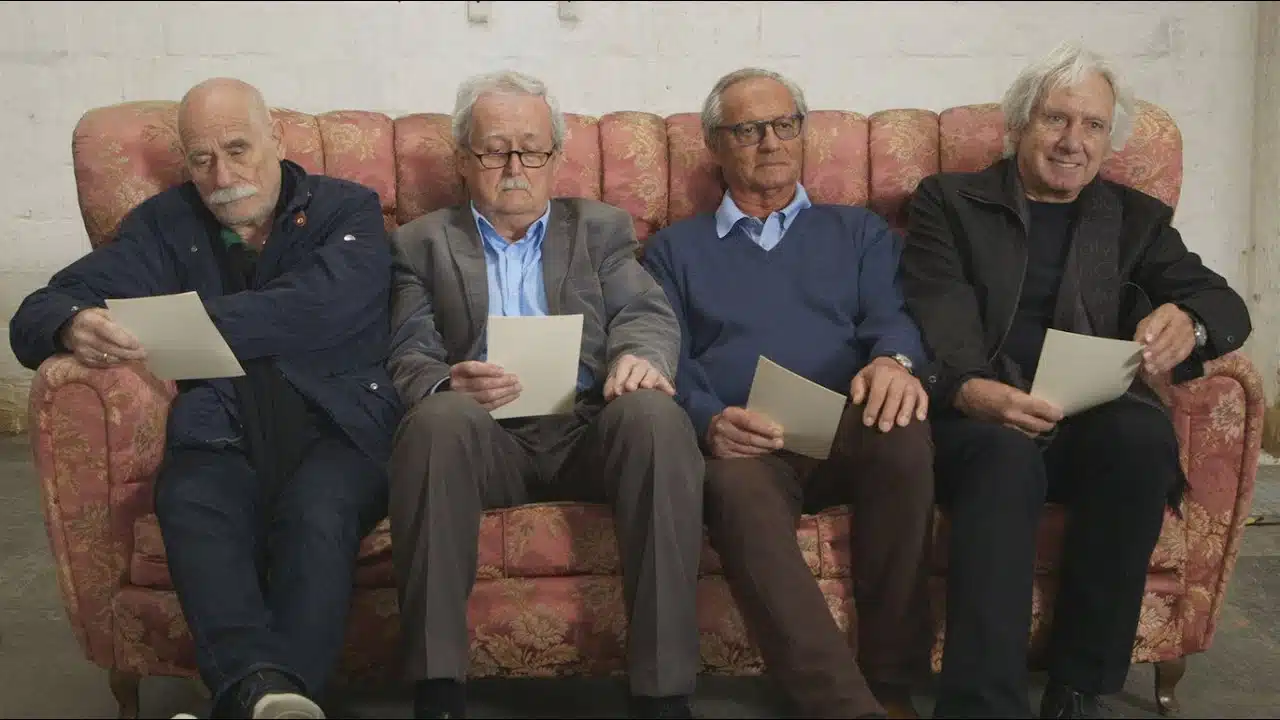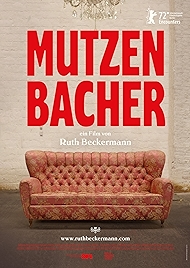Every year the arthouse-friendly movie portal Cineuropa hands out a rake of Best Of awards. At first glance Mutzenbacher looks like an odd inclusion on its list, sitting alongside Aftersun, The Quiet Girl (my favourite), Godland, Piggy, Rimini and Eo.
They are all fabulous, but they’re fabulous fictional dramas. Mutzenbacher is a documentary. And yet there is also something slyly dramatic, and possibly a touch fictional, about Ruth Beckermann’s documentary. For all its dispassionate forensic surface, Mutzenbacher does have a dramatic throughline, one that rather amusingly mimics events in the book that inspired it.
Published in 1906, the novel Mutzenbacher, or Josefine Mutzenbacher, or The History of a Viennese Whore, is the supposed memoir of a prostitute’s early days and follows its heroine from the age of five to 13 as she trades sex, less for money, or so the book claims, more because she’s horny.
In a series of sexual encounters, Josefine is sexually propositioned by some older man (or woman), resists, yields and then ultimately surrenders herself to pleasure, her virginal disposition evaporating in each case as soon as it’s challenged.
The book was banned from the moment it was published and was still on a list of books likely to harm the development of German children as recently as 2017 (it might now be back on there again).
There’s a slight irony that this erotic tale was written by Felix Salten, the writer of Bambi (though that is also a tale of an endangered juvenile), though the authorship has always remained disputed. Another contender is Arthur Schnitzler, writer of La Ronde, a sexual merry-go-round.
Both of them men. Who are the focus of Beckermann’s film, which is constructed as a casting call. She asked people to come in and read for a film she was making. When they turned up she sat them down on a plush 19th-century sofa, singly or more often in pairs, and gave them an excerpt to read from the book, which invariably involved Josefine getting into an explicit sexual tangle with one old goat or another.
After they’ve read, she asks questions, some of them probing, but not in a cruel way. As she films, the men open up. Some talk of first sexual experiences. Others air their theories about the society’s current view of masculinity (that “toxic masculinity” is a toxic notion, in other words). Another talks of smelling his nanny’s underwear. With another she discusses whether he’s verbal during sex, and if so why.
Regardless of how old they are, or where they are on the open/closed spectrum, all the men are convinced the book was written by a man. This young girl who cannot get enough sex and who is in no way the victim of child abuse could only have been the product of a male imagination, they all reason.
A conversation between a few of the guys develops at one point, in which they hash out the whole child abuse versus sexual freedom continuum. Some of the older guys lament that the world they grew up in – an age of the sexual libertine – is over. A younger guy sitting to one side is not so sure.
A big, potentially hugely awkward casting call has turned into a fascinating portrait of the sexual mores of our age.
Beckermann never appears on screen. She’s just a voice from behind a camera which sits on a tripod and barely moves.
There are moments of comedy, often because of the florid writing style of whoever penned the original book – “I twitched my buttocks and tightened my man-trap,” – delivered by men who are not sure whether to smirk or not.
And every now and again Beckermann gives us an ensemble shot of maybe 100 of her interviewees together in the barren studio as they chant strings of words from the book. “Sweetie, angel, honey, sweetheart…” at one point. “Banging, screwing, reaming, shagging, poking, pounding…” at another. One of the men says, “You mean ramming. Ramming.” “Reaming,” corrects another. And a little discussion breaks out.
Other little pleasures include observing the transformative power of a good line reading. Some of the guys are fabulous performers; some not.
But Beckermann saves her canniest move for the end, when a grandfather who’s come in to read suddenly gets cold feet on realising what it is that he’s expected to work with. He’s a nice guy who’s worried that one day his grandkids will see footage of “grandpa” with a dirty word in his mouth.
And then, leading him gently, Beckermann does to this old guy exactly what countless gents have done to Josefine in the book, in a literally way. It’s teasing, dramatic, revelatory and entirely satisfying. Accolade earned, Mutzenbacher deserves its slot alongside the best of 2022.
Mutzenbacher – Watch it/buy it at Amazon
I am an Amazon affiliate
© Steve Morrissey 2024


